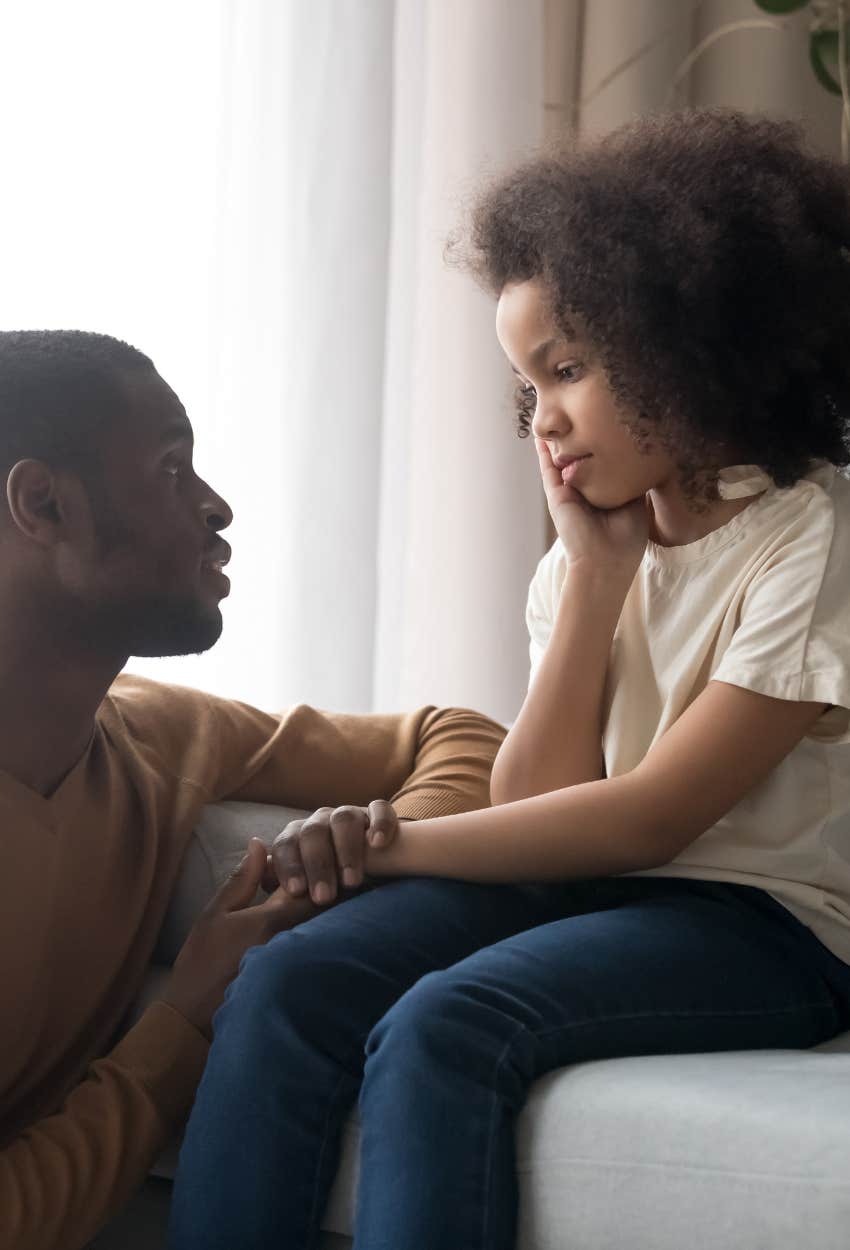Parents Who Do These 2 Things Have What It Takes To Break Painful Generational Cycles For Their Kids
Breaking the cycle starts with you — here’s how to give your kids what you never got.
 StockPhotoDirectors | Shutterstock
StockPhotoDirectors | Shutterstock Generational trauma can feel overwhelming, especially when you start to notice it repeating in your own life. As a parent, you want to give your children the best possible start. But that’s not always easy when you’ve been shaped by patterns you didn’t choose. The good news? Even if it feels heavy or stressful, it is possible to break those cycles and to create a new, healthier path forward for your family.
TikTok creator and licensed marriage and family therapist Kate Gray recently shared a video on how parents can break painful generational cycles. In it, she offered a straightforward “recipe” for healing family dynamics, including parent-child relationships and codependency.
The therapist shared two skills parents need to break free from generational cycles:
In news that should be incredibly comforting to parents everywhere, Gray started her video explaining, “Studies show that you only have to get parenting right 30% of the time to have a securely attached child." The research she referenced is rooted in the early 20th century when British Pediatrician, Donald Winnicott, observed that parenting seemed to be "good enough" if moms and dads were getting things right at that 30% mark.
Comforting, right? Gray went on to say, "I'm going to show you the two skills that you need to get that 30% right.”
1. Self-compassion
The first skill Gray highlighted was self-compassion. She stressed that it wasn't only essential for parenting but also key to "overall life satisfaction and relationship happiness." While many people are kind and supportive toward friends, they often struggle to show that same care to themselves, especially if they grew up with a critical or neglectful parent.
As Gray put it, “But the good news is… that it’s not your voice. You weren’t born with it… You learned it.” And what’s learned could be unlearned. She argued, "You need to make space for your real voice to emerge. Because that is the real you."
This idea is backed by research. According to Harvard Business Review, people who practice self-compassion — treating themselves with kindness after setbacks — work harder, learn more from mistakes, and feel better about who they are. They’re also more likely to adopt a growth mindset, which is the belief that abilities can improve with effort.
The best part? Self-compassion is a skill you can build. Start by asking yourself: Would I say this to a friend? If not, practice being gentler with yourself. Over time, this mindset can lead to greater confidence, resilience, and personal growth.
2. The BEND method
 fizkes | Shutterstock
fizkes | Shutterstock
Parents can break painful generational cycles by using what Gray called the BEND method, a tool designed to help process emotions more effectively. Instead of ignoring or reacting with self-criticism, BEND guides parents through a more mindful approach.
The "B" stands for behavior, which means taking a moment to recognize what you did in a situation, such as yelling. The "E" stands for emotion, encouraging you to identify what you’re truly feeling, often something deeper, like fear, rather than just surface-level anger. The "N" stands for need, helping you understand what unmet need is driving your emotional response, such as feeling unsupported or exhausted. Finally, "D" stands for desire, which means clarifying what you need in that moment. By practicing these steps, parents can respond with more awareness and less reactivity, disrupting unhealthy patterns and fostering healthier emotional responses.
This approach may seem theoretical; however, research supports its effectiveness because parents have a significant influence on how their children regulate their emotions. Studies show that when parents acknowledge their children's emotions, it leads to a happier child. On the other hand, dismissing a child's feelings or strict punishment is linked to increased behavioral and emotional problems.
When parents model how to positively handle their emotions more effectively, they teach their children to do the same. This leads children to have a better handle on their emotions. Even better, negative cycles are broken, and future generations can let go of the baggage.
Mina Rose Morales is a writer and photojournalist with a degree in journalism. She covers a wide range of topics, including psychology, self-help, relationships, and the human experience.

